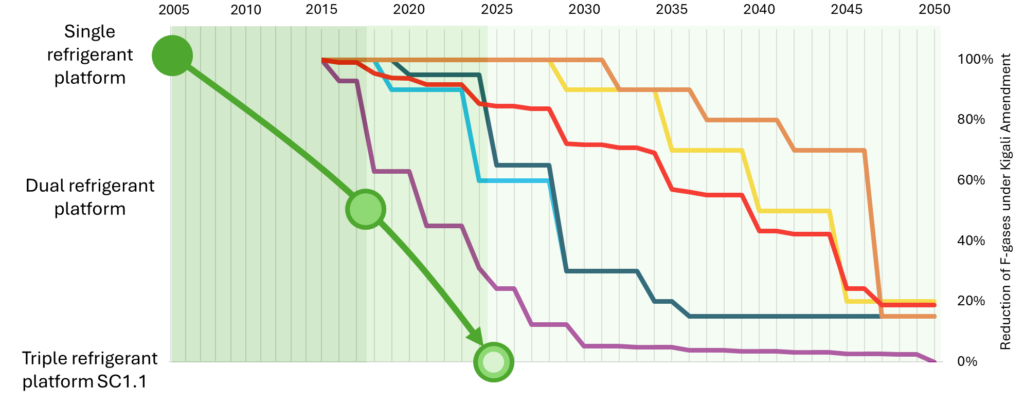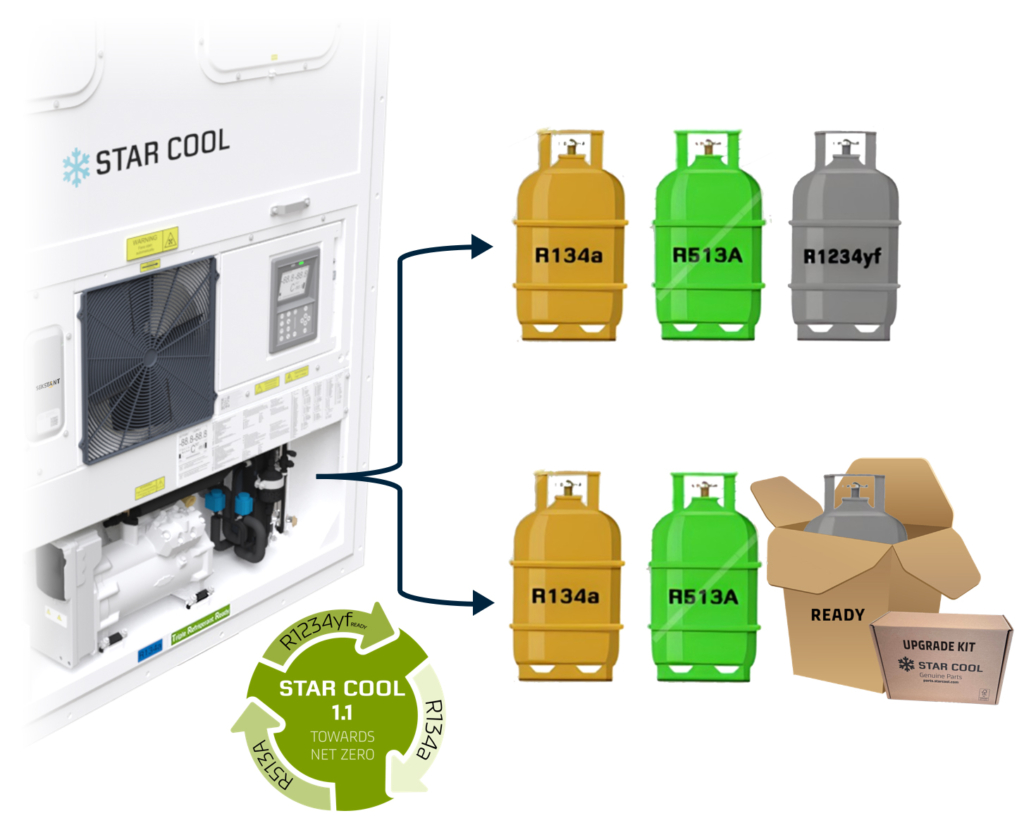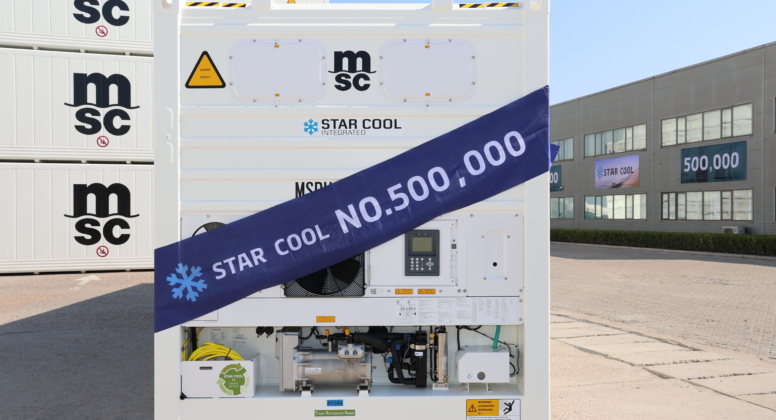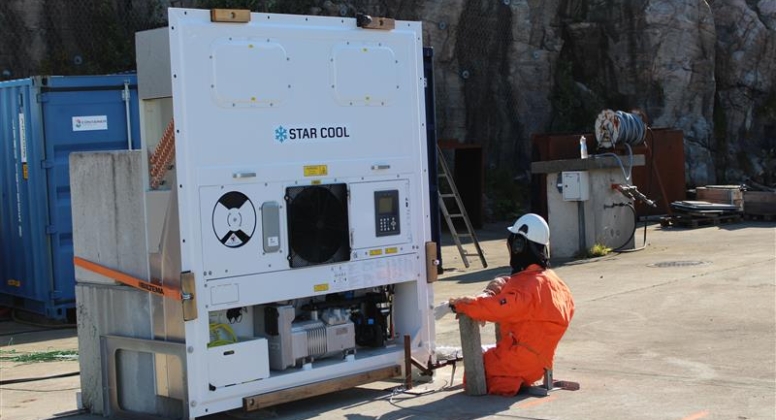Refrigerants
The Star Cool 1.1 is engineered to be compatible with an ultra-low GWP (Global Warming Potential) refrigerant named R1234yf, significantly reducing environmental impact of Reefer operation and resulting to the lowest TEWI in the industry.
What influences GWP?
When entering the atmosphere through leakage, a refrigerant influences the global warming by its potential to reflect radiative heat from the earth. This potential is influenced by the molecular structure as well as its lifetime in the atmosphere and is referenced to a natural substance (CO2).
However, fossil fuels are used to power reefers on a vessel and CO2 emitted into the atmosphere also has an impact on global warming. Inefficient systems use more energy and thus generate more CO2. TEWI combines the emissions of both refrigerant and power consumption.
Total Equivalent Warming Impact
The Total Equivalent Warming Impact (TEWI) is a measure that combines the impact from direct and indirect emissions and gives a more holistic picture than a simple GWP comparison.
In particular, TEWI enables the comparison of efficiency of different refrigerant options in a specific application. For reefers, the real annual operation profile must taken into account, as they are operated mostly in hot climates and environments.

Global HFC Phase down – The Kigali Amendment to the Montreal protocol
In many regions of the world, refrigerant regulations are coming into effect. In most parts, emissions from HFC refrigerants will be to 15-20% by the end of the 2040s. The European Union goes beyond this target and has decided to phase out HFCs completely by 2050. While there will be differences between different countries, when it comes to the extend and timing, Refrigerants with high GWP will be under price and availability pressure – resulting to an operational risk of reefers using these substances.
The triple refrigerant compliant Star Cool 1.1 reefer enters the market at the beginning of a new era – the transition to alternative refrigerants, and consequently a gradual phase out of HFC refrigerants (R134a and R513A) will happen during the lifetime of all new reefers being put into service from now on.
Star Cool 1.1 newbuilds will be produced in two variants:

Triple refrigerant
Fully compatible with R134a, R513A, and R1234yf from the factory. No additional modifications needed to charge with R1234yf
*Operator responsibility for ISO 20854 (operator risk assesment)
Triple refrigerant ready
Charged with R134a or R513A and easily upgradable to also become fully compatible with R1234yf:
- Install alarm beacon
- Install air exchange motor
- Install updated decals


